cladding 发布时间:2024-01-26 14:27
内容详情
Aviation sector:
Engine gearbox repair
Cause of damage: Defects or damages during use, processing scrap during new product processing
Cladding material: generally using the same material as the substrate
Melting effect: almost restored to the original accuracy
Problem solved: Revitalizing damaged and scrapped parts, greatly saving economic costs
Materials used: Renel41, TC4, IN718/GH4169, WASPLOY, etc
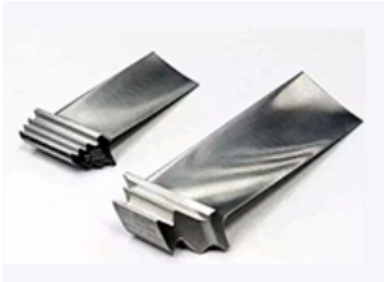
Blade repair
Cause of damage: Cracks, wear, and corrosion caused by wear, impact, high-temperature gas, and cold/hot fatigue
Cladding material: additive material with better performance than blade substrate
Melting effect: The performance reaches or even exceeds the original parts
Problem solved: Creating a new era of independent repair of key components in domestic aviation engines
Examples done: high-pressure turbine blades, compressor blades, single crystal blades
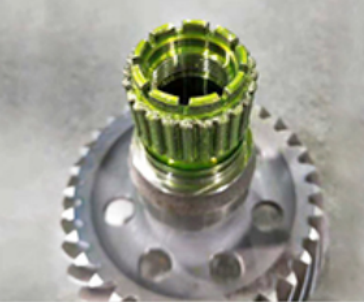
Spline repair
Cause of damage: Wear and tear during use
Cladding material: generally using the same material as the substrate
Melting effect: almost restored to the original accuracy
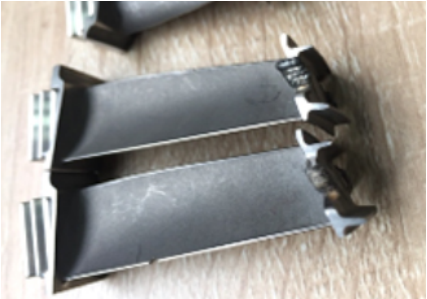
Teeth shaped blade crown repair
Reason for cladding: In order to improve the service life of the blades and enhance their corrosion resistance performance
Cladding material: Generally, two wear-resistant alloys, Co Cr W and Co Cr Mo, are selected
Cladding effect: The corrosion resistance of the cladding layer is higher than that of the substrate, and the hardness value of the cladding layer has far exceeded the customer's requirements
Case study done: turbine blades with toothed crowns
Energy and electricity industry:
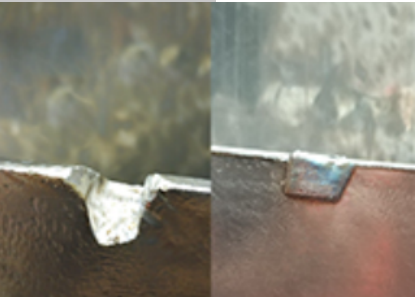
Wheel body repair
Cause of damage: Long term water flow erosion produces a large number of erosion pits at the stop flow edge
Melting effect: restored to its original size and accuracy, with excellent performance and significantly extended service life of parts
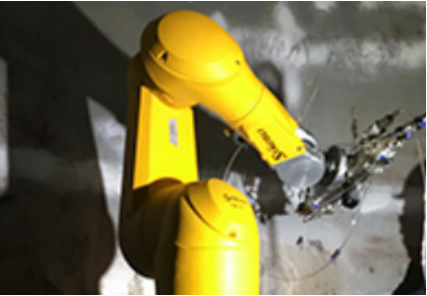
Wheel chamber repair
Cause of damage: Due to long-term pressure pulsation and cavitation, severe cavitation pits and cracks have appeared on the blades of the water turbine
Melting effect: metallurgical bonding, no problems found after one year of service
Solution: Traditional repair bonding is not strong enough, resulting in extensive detachment in the second year
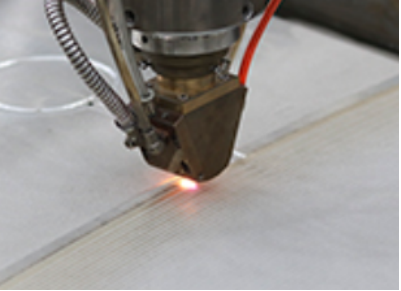
Repair of thrust pads
Cause of damage: Long term use has caused erosion spots on the surface of the thrust pad, posing a hidden danger to the safe and stable operation of the unit
Cladding effect: The surface of the part is well formed, and its performance exceeds that of the original new product
Solution: The original surface is cast with Babbitt alloy, resulting in high material loss and poor performance
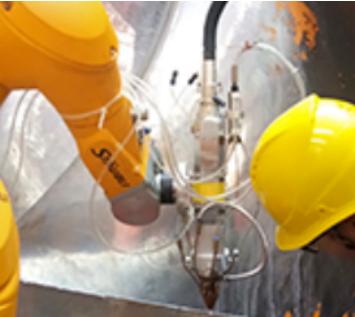
Repair of blade for overcurrent components
Cause of damage: Metal loss caused by long-term wear and tear on the blades of hydroelectric units
Melting effect: improving the stability and service life of equipment
Project advantage: This repair project has achieved laser vertical welding and cladding technology, achieving on-site repair and strengthening of coatings

Repair of high current busbar joints
Customer requirement: Preparation of conductive silver layer on aluminum surface
Melting effect: effectively reduces its contact resistance and improves conductivity. Green and environmentally friendly
Solution: The electroplating silver method has low bonding strength, short service life, and can have a significant impact on the environment during the process
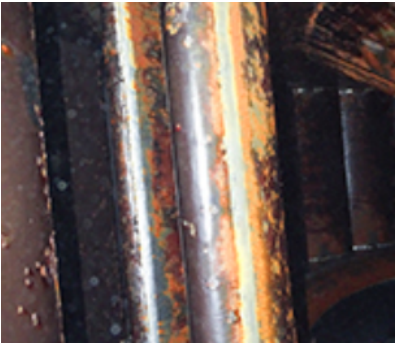
Guide vane repair
Cause of damage: cavitation failure, local thickness is large, and the amount of cavitation is large
Melting effect: The corrosion resistance, erosion and wear resistance of the substrate are significantly better than those of the substrate
Problem solving: Traditional overlay welding repair has a high heat accumulation and parts are prone to deformation during the fusion process

Repair of gas turbine blades
Blades are the core components of gas turbines, and their quality directly affects the safety of the entire unit. Our company adopts laser cladding technology and independently develops a process hole additive sealing process, achieving the repair effect of single-sided cladding and double-sided forming. Completed the additive sealing of the R2-R10 casting process holes on the 50000 kW heavy-duty gas turbine blades. After processing, the blades did not produce any defects or deformations.
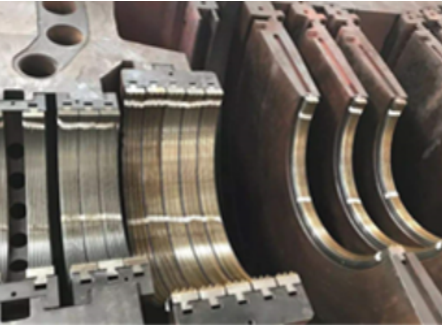
Repair of gas turbine bearing shells
In a steam turbine, the bearing shell is one of the important components of the bearing. During operation, in addition to wear and tear on the shaft neck, it also needs to withstand the load transmitted to it by the shaft neck. Therefore, the lining material should have a small friction coefficient, good anti friction effect, and sufficient compressive strength and toughness.
Tin based Babbitt alloy meets the above performance requirements, with high hardness phase components distributed on the soft phase matrix, making it a very suitable shaft lining material.
Compared with other tin based Babbitt alloys, SnSb11Cu6 has the smallest coefficient of linear expansion, high thermal conductivity, high corrosion resistance stability, and fatigue strength. It is suitable for high load, HB300, and medium hardness shaft operation. Therefore, it is widely used as a bearing for supporting rotors in steam turbines.
During the operation of a steam turbine, oil interruption and burning of bearings occur. Traditionally, the problem is solved by replacing or re pouring the bearings. The use of laser cladding technology for repairing bearing shells can achieve local and rapid repair, saving time and cost
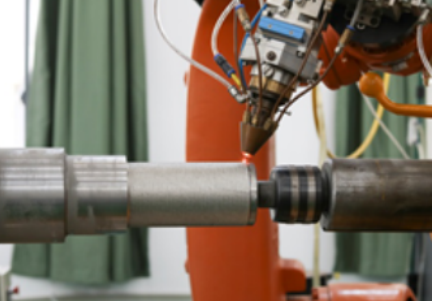
Steam turbine spindle repair
The main shaft of a steam turbine is the shaft that connects the turbine wheel to the generator rotor, transmitting torque. Prolonged use has caused severe wear on the shaft diameter, resulting in reduced size and inability to function properly. By using laser cladding, the shaft diameter can be repaired to the original design size, restoring the performance and service life of the parts, and improving economic benefits.